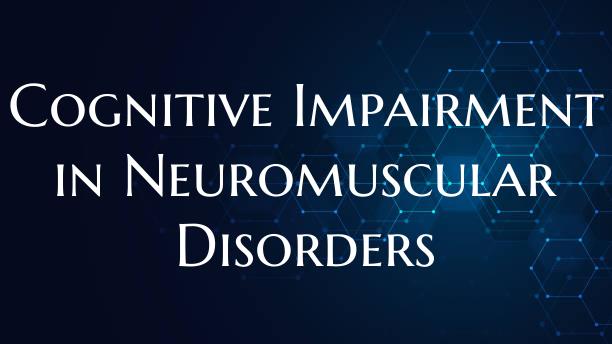
Cognitive Impairment in Neuromuscular Disorders
Neuromuscular disorders encompass a wide range of conditions that affect the nerves controlling voluntary muscles. While these disorders primarily manifest as muscle weakness, fatigue, and motor dysfunction, cognitive impairment is increasingly recognized as a significant aspect of these conditions. Cognitive impairment in neuromuscular disorders refers to difficulties with thinking, memory, decision-making, and other mental processes that can impact daily functioning and quality of life.
The link between neuromuscular disorders and cognitive impairment is complex and multifaceted. Some neuromuscular disorders directly affect the central nervous system, leading to cognitive difficulties as part of the disease process. For example, conditions like myotonic dystrophy and Duchenne muscular dystrophy have been associated with cognitive deficits due to abnormal brain development and function.
In other cases, the cognitive impairment seen in neuromuscular disorders may be secondary to factors such as chronic pain, fatigue, medication side effects, or psychological distress. Individuals with neuromuscular disorders often face challenges related to mobility, communication, and social interaction, which can contribute to cognitive decline and emotional distress over time.
Assessment and management of cognitive impairment in neuromuscular disorders require a multidisciplinary approach involving neurologists, neuropsychologists, physical therapists, and other healthcare providers. Neuropsychological testing, brain imaging studies, and cognitive assessments can help identify specific cognitive deficits and tailor interventions to individual needs.
Treatment strategies for cognitive impairment in neuromuscular disorders may include cognitive rehabilitation, educational support, occupational therapy, and behavioral interventions. In some cases, medications to address symptoms such as depression, anxiety, or sleep disturbances may also be beneficial in improving cognitive function and overall well-being.
Overall, recognizing and addressing cognitive impairment in individuals with neuromuscular disorders is essential for optimizing their quality of life and promoting independence. By understanding the unique challenges faced by these individuals and implementing targeted interventions, healthcare professionals can help mitigate the impact of cognitive difficulties and improve overall outcomes for patients with neuromuscular disorders.